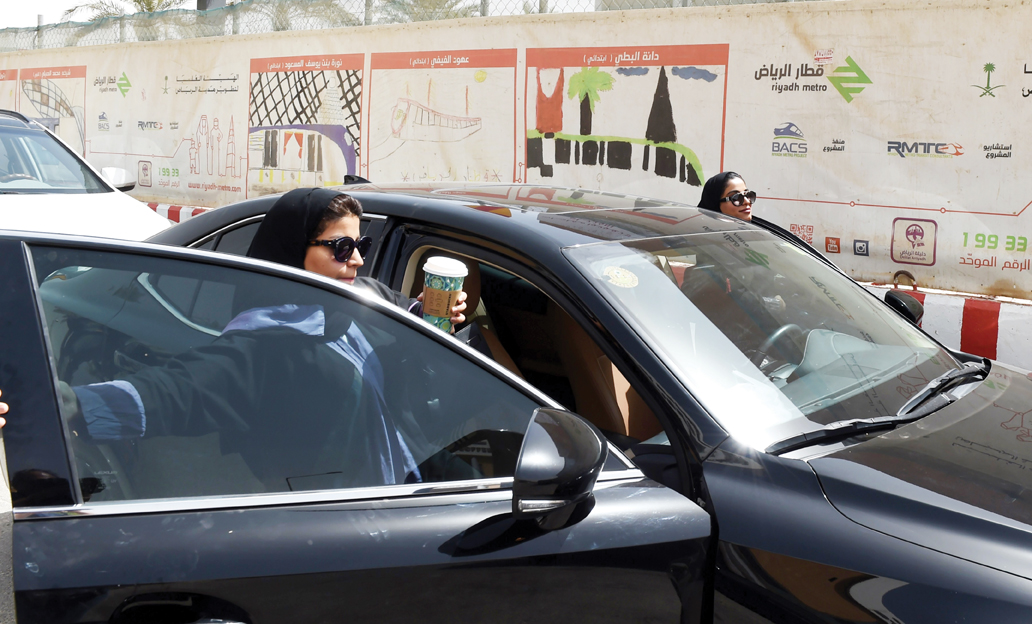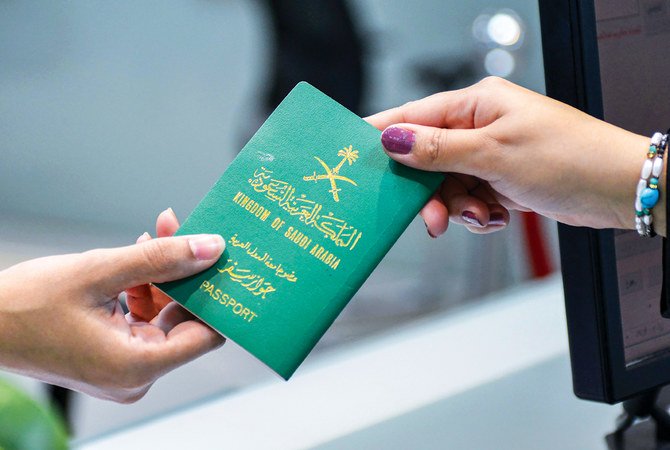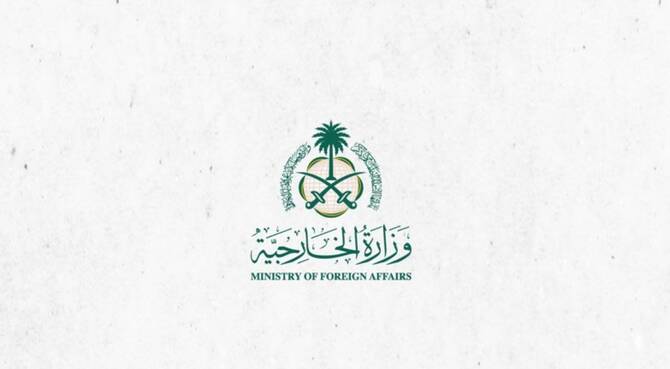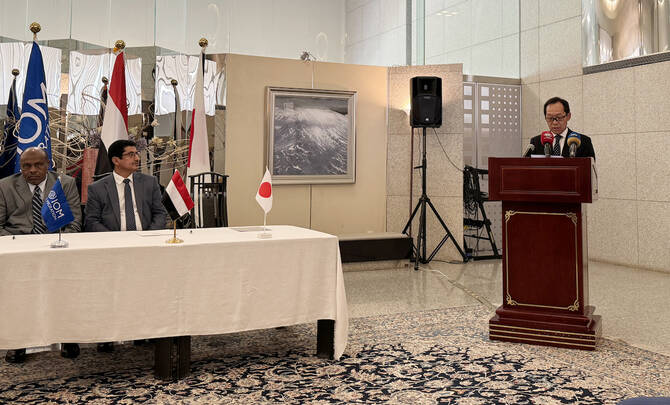DUBAI: Rapid reform in Saudi Arabia is opening the door for female “role models and leaders of the future” — and the Kingdom’s women are seizing the opportunity, according to major employers.
Saudi women are bringing “passion, energy and enthusiasm” to the workplace in greater numbers than ever, Danielle Atkins, chief marketing and communications officer at Diriyah Gate Development Authority (DGDA) in Riyadh, told Arab News.
Atkins said that she has seen a sharp rise in the number of women working in the Kingdom.
“I look for passion, an entrepreneurial spirit and commitment — and all of this I see from the Saudi women in my team,” she said.
“This is an incredible time for Saudi women.”
Atkins’ comments follow a World Bank report that highlighted Saudi Arabia’s rapid progress towards gender quality since 2017 by ranking it the top reformer and the top improver among 190 countries.
The bank’s “Women, Business and the Law” (WBL) 2020 report gave the Kingdom an overall score of 70.6 out of 100 — a 38.8 jump since its last ranking — placing it first among GCC countries and second in the Arab world.
WBL measures gender inequality in the law, identifies barriers to women’s economic participation and encourages reform of discriminatory laws.
The report highlights improvements in Saudi Arabia’s score in six of the eight indicators, notably in women’s mobility, following the removal of restrictions on obtaining a passport and traveling abroad.
Besides mobility (100), the most improvements were recorded in the workplace (100), marriage (60), parenthood (40), entrepreneurship (100) and pension (100).
New legal amendments also equalized women’s right to choose where to live and to leave the marital home, the report says.
Atkins told Arab News that the “remarkable change” in opportunities for women can be attributed to the implementation of Crown Prince Mohammed bin Salman’s blueprint for transformation — the Saudi 2030 Vision
“Today, women are being appointed to senior governmental roles and are leading in fields such as science and medicine, which were traditionally male oriented,” she said.
“They will become role models for the future.”

Reforms including the right to drive offer Saudi women a stake in the Kingdom’s economic future, according to a World Bank report. (AFP)
With regard to the workplace, Saudi Arabia has enacted legislation and criminal penalties for sexual harassment and prohibited gender discrimination.
In the area of marriage, the Kingdom has begun allowing women to be head of the household and removed the legal obligation to obey their husbands. With regards to parenthood, Saudi Arabia, along with the UAE, prohibited the dismissal of pregnant workers.
“One of the goals of Vision 2030 is to increase the proportion of women in employment from the current level of 22 percent to 30 percent,” Atkins said.
“The DGDA team is comprised of 83 percent Saudis, of which 34 percent are women. The marketing team has an even higher percentage with 57 percent of women.
“My first three new hires are all Saudi women, and my impression as someone who is new to the Kingdom is that this change is being led by the government and individual CEOs. It would be great to see this cascade into all industries within Saudi Arabia,” she said.
In a boost for entrepreneurship, the Kingdom has made access to credit easier for women by prohibiting gender-based discrimination in financial services, a legal provision that has been proven to increase women’s access to finance and is still not in place in 115 economies.
In the pension section, the Kingdom equalized the age (60) at which men and women can retire with full pension benefits. It also mandated a retirement age of 60 for both women and men.
One of the most encouraging aspects of the changes underway in the Kingdom is the trend for women to study what have traditionally been regarded as exclusively male domains: Science, technology, engineering and mathematics, the so-called STEM disciplines.
For instance, of the 5,200 who graduated from the Princess Nourah Bint Abdulrahman University (PNU) in Riyadh last year, 1,400 came from STEM faculties.
“I predict a huge contribution from women in that sector in the near future,” Einas Al-Eisa, rector of the PNU, told Arab News at the recent annual meeting of the World Economic Forum in Davos, Switzerland.
“One good story that comes from Saudi Arabia is the increased number of women engaging in the technology sectors, for example, versus the drop we see worldwide. Elsewhere women are moving away from these fields, whereas in the Kingdom, the number is going up constantly.”
Cyril Widdershoven, director of VEROCY, a Dutch consultancy advising on investments, energy and infrastructure in the region, said improvements in the position of women in Saudi Arabia are visible in offices, workplaces and on the streets.
“The role of women in the Saudi economy is clear. It is an available workforce that should be accessed,” he said.
“At the same time, diversity in the workforce is increasing overall productivity, profitability and sustainability.
“What needs to be done is to educate and strategize sectors for women.”

Women university students in the Kingdom are entering traditional male domains such as science, engineering and mathematics in growing numbers. (AFP)
According to the World Bank report, economies in the Middle East and North Africa and sub-Saharan Africa make up nine of the top 10 reforming economies.
Some of the Kingdom’s groundbreaking reforms include criminalizing sexual harassment in public and private sector employment in 2018, as well as allowing women greater economic opportunity last year.
Legal amendments now protect women from discrimination in employment, including job advertisements and hiring, and prohibit employers from dismissing a woman during her pregnancy and maternity leave.
“These reforms build on other historic changes in Saudi Arabia, which in 2015 for the first time allowed women to vote and run as candidates in municipal elections and, in 2017, gave women the right to drive,” the report said. “The reforms are spurred by an understanding that women play an important role in moving Saudi Arabia closer to its Vision 2030.
“This ambitious plan to modernize the Saudi Arabian economy by diversifying it beyond oil and gas, promoting private sector growth, and supporting entrepreneurship also includes the goal of increasing women’s labor force participation.”
The report mentioned remaining legal constraints on women’s participation in the economy, which, if addressed, could increase their economic contribution.
As for what young Saudi women will do after graduation, the Vision 2030 strategy envisages a big increase in the female workforce, rising to as much as 30 percent over the next decade.
Recent statistics show that the Kingdom is well on the way to reaching that target, with 23.5 percent of the private sector workforce being female.
“Just as it should be everywhere else in the world, it is the competency of the graduates that dictates where they go,” Al-Eisa said.
For Saudi Arabia to diversify and advance, Widdershoven said, the Kingdom’s women need to be financially independent, but also able to fill in gaps in the workforce.
“From health care to finance, energy, agriculture and industry, the strength of these mainly young women is remarkable,” he said.






















